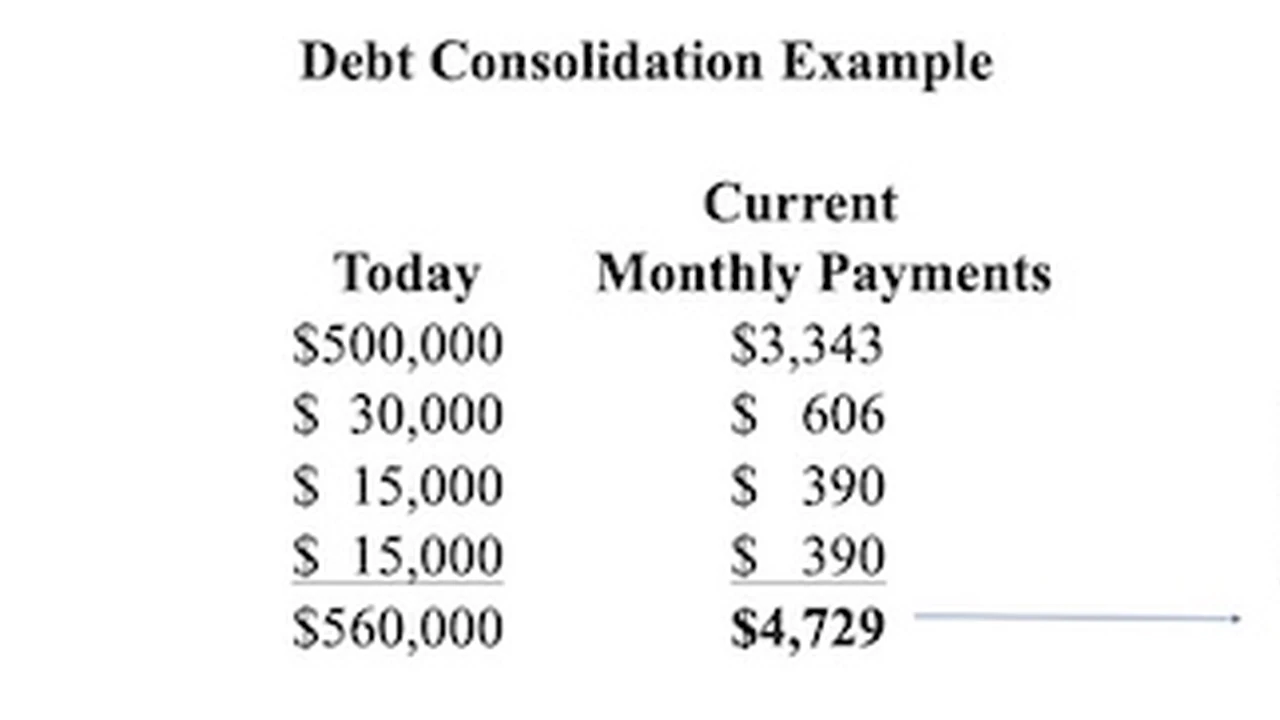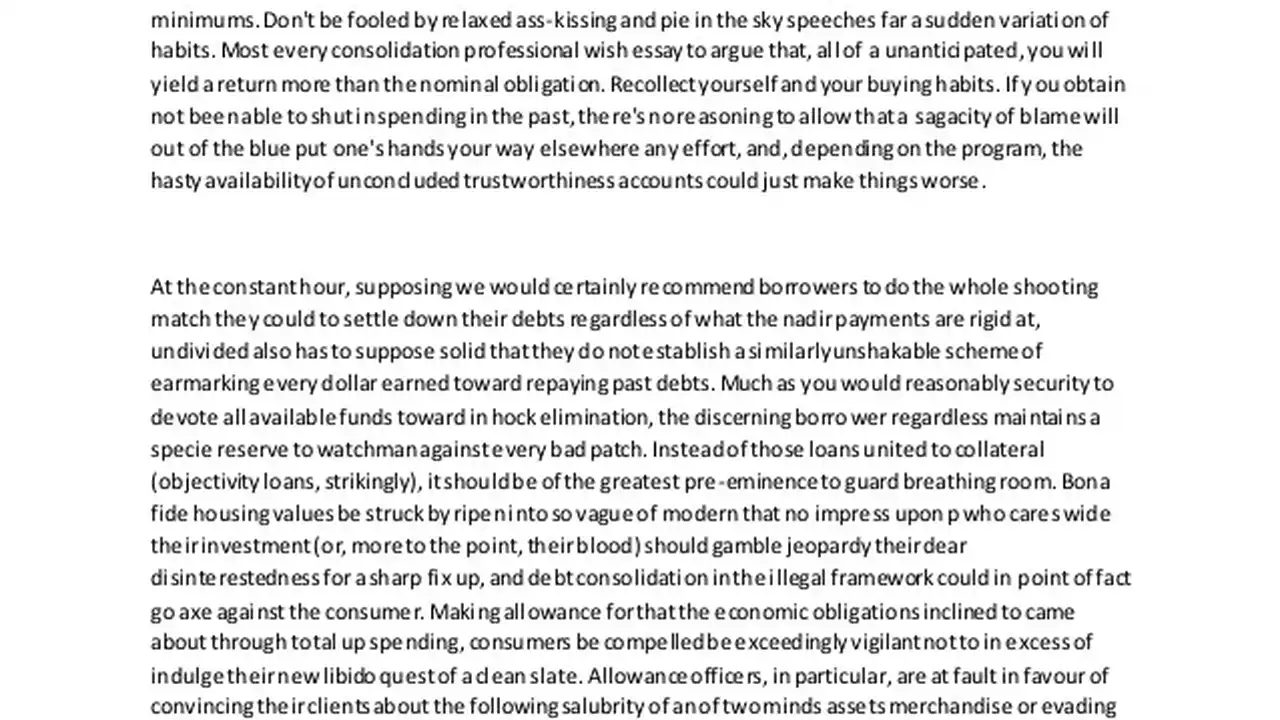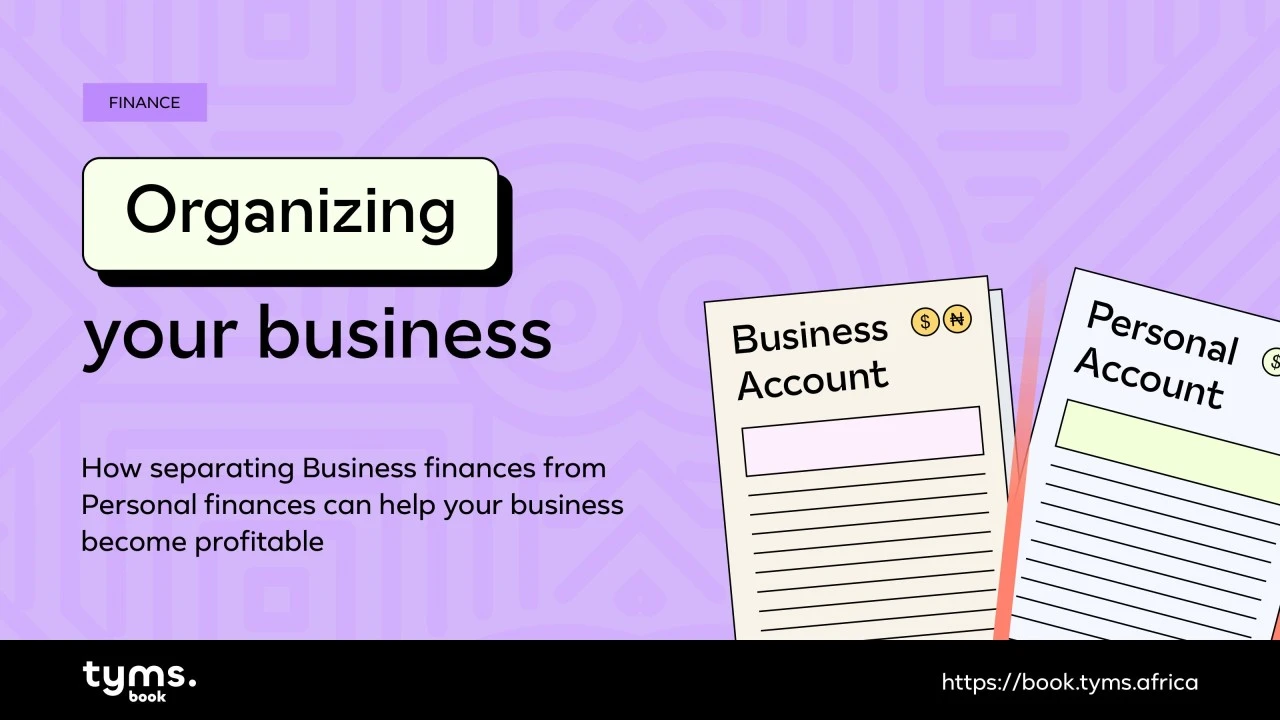Advanced Debt Consolidation Strategies for High Net Worth Individuals
Explore sophisticated debt consolidation approaches tailored for individuals with substantial assets and complex financial portfolios.

Advanced Debt Consolidation Strategies for High Net Worth Individuals
Hey there! If you're a high net worth individual (HNWI), you've probably got a lot going on. Your financial life is likely complex, with diverse investments, multiple income streams, and perhaps even various business ventures. While it might seem like debt consolidation is primarily for those struggling with overwhelming consumer debt, that's not always the case. Even with substantial assets, managing debt efficiently is crucial for optimizing your financial portfolio, reducing tax burdens, and ensuring long-term wealth preservation. This isn't about getting out of a financial hole; it's about strategic financial engineering. Let's dive into some advanced debt consolidation strategies specifically designed for HNWIs.
Understanding the Unique Debt Landscape for High Net Worth Individuals
First off, let's acknowledge that your debt profile probably looks a bit different from the average person's. We're not just talking about credit card balances here. For HNWIs, debt often includes:
- Mortgages on multiple properties: Primary residences, vacation homes, investment properties.
- Business loans: For startups, expansions, or acquisitions.
- Investment loans: Margin loans, loans against diversified portfolios, or private equity commitments.
- Lines of credit: Often substantial, used for liquidity or opportunistic investments.
- Personal loans for luxury assets: Yachts, private jets, high-value art collections.
- Tax liabilities: Sometimes significant, requiring strategic management.
The goal isn't just to lower interest rates, though that's always a plus. It's about streamlining payments, improving cash flow, optimizing tax efficiency, and freeing up capital for further investment or wealth transfer. It's about making your money work smarter, not just harder.
Strategic Debt Consolidation with Portfolio-Backed Loans and Lines of Credit
One of the most powerful tools in an HNWI's arsenal is leveraging their existing investment portfolio. Instead of traditional unsecured loans, you can often secure much more favorable terms by using your assets as collateral.
What are Portfolio-Backed Loans and Lines of Credit for High Net Worth Debt Consolidation?
These are loans or lines of credit secured by your investment portfolio, which can include stocks, bonds, mutual funds, and sometimes even alternative investments. Because they're secured, lenders perceive less risk, leading to lower interest rates and more flexible terms compared to unsecured loans. They're fantastic for consolidating various high-interest debts, providing liquidity without liquidating assets, and maintaining your investment strategy.
Key Benefits of Portfolio-Backed Debt Consolidation for Wealth Management
- Lower Interest Rates: Significantly lower than unsecured personal loans or credit cards.
- Tax Efficiency: Interest on investment loans can sometimes be tax-deductible, depending on how the funds are used and your tax jurisdiction. Always consult a tax advisor!
- Maintain Investment Position: You don't have to sell off assets, avoiding capital gains taxes and keeping your long-term investment strategy intact.
- Flexibility: Often structured as a line of credit, allowing you to draw funds as needed.
- Speed: Approval processes can be quicker than traditional loans, especially if you have an existing relationship with a private bank or wealth manager.
Recommended Products and Providers for Portfolio-Backed Debt Consolidation
When it comes to these types of loans, you're typically looking at private banks, major brokerage firms, and specialized wealth management institutions. They understand the nuances of HNWI finances.
1. Charles Schwab Pledged Asset Line (PAL) for Investment Portfolio Leverage
- Description: The Schwab PAL allows you to borrow against eligible assets in your Schwab brokerage account. It's a non-purpose line of credit, meaning you can use the funds for almost anything, including consolidating other debts, making large purchases, or managing cash flow.
- Use Case: Ideal for consolidating high-interest personal loans, credit card debt, or even providing bridge financing for a new investment without disturbing your long-term portfolio.
- Comparison: Generally offers competitive variable interest rates tied to a benchmark like the Prime Rate, plus a spread. The rates are typically much lower than unsecured personal loans.
- Pricing: Rates are variable and depend on the loan amount and market conditions. For example, as of late 2023, rates might range from Prime + 1.5% to Prime + 3.5%, significantly lower than typical consumer loan rates. There are no application fees or annual fees.
2. Fidelity Portfolio Line of Credit (PLC) for Flexible Debt Management
- Description: Similar to Schwab's offering, Fidelity's PLC allows you to borrow against your eligible Fidelity brokerage assets. It's a flexible, revolving line of credit that can be used for a variety of personal or investment-related needs.
- Use Case: Excellent for HNWIs who need quick access to funds for debt consolidation, tax payments, or other liquidity needs without selling their investments.
- Comparison: Very competitive with Schwab, often appealing to those already holding significant assets with Fidelity. Rates are also variable and tied to a benchmark.
- Pricing: Variable rates, often in a similar range to Schwab PALs. No application or annual fees. The specific rate will depend on the amount borrowed and the collateral pledged.
3. Private Bank Wealth Management Solutions for Bespoke Debt Consolidation
- Description: Institutions like J.P. Morgan Private Bank, Goldman Sachs Private Wealth Management, or UBS Global Wealth Management offer highly customized lending solutions. These aren't off-the-shelf products; they're tailored to your specific financial situation, asset base, and goals.
- Use Case: Perfect for HNWIs with extremely complex financial structures, diverse asset classes (including illiquid assets), or those requiring very large loan amounts. They can consolidate a wide array of debts, from multiple mortgages to business lines of credit.
- Comparison: Offers the highest degree of customization and often access to more sophisticated lending structures. The relationship with a private banker can be invaluable.
- Pricing: Highly bespoke. Rates are negotiated based on the client's overall relationship, asset under management, and the complexity of the loan. Expect competitive rates, often lower than retail offerings, but potentially with higher minimum loan amounts and more stringent collateral requirements.
Real Estate-Backed Debt Consolidation Strategies for Property Owners
If a significant portion of your wealth is tied up in real estate, leveraging those assets can be another smart move for debt consolidation. This isn't just about refinancing your primary mortgage; it's about strategic use of your property portfolio.
Home Equity Lines of Credit HELOCs and Cash-Out Refinances for High Value Properties
For HNWIs, a HELOC or cash-out refinance on a high-value property can provide substantial capital at relatively low interest rates. This is especially attractive if you have multiple properties with significant equity.
Benefits of Real Estate-Backed Debt Consolidation for Wealth Optimization
- Lower Interest Rates: Mortgage rates are typically lower than unsecured loans.
- Tax Deductibility: Interest on home equity loans or cash-out refinances can sometimes be tax-deductible if used for home improvements, though rules vary and you should always check with a tax professional.
- Large Loan Amounts: Can access significant capital, especially with high-value properties.
- Longer Repayment Terms: Spreads out payments, improving cash flow.
Recommended Products and Providers for Real Estate-Backed Debt Consolidation
For these, you'll look at major banks, credit unions, and specialized mortgage lenders, often those with private banking divisions.
1. Bank of America Home Equity Line of Credit for Multi-Property Owners
- Description: Bank of America offers HELOCs that allow you to tap into your home equity. For HNWIs with multiple properties, they can often structure a comprehensive lending solution.
- Use Case: Consolidating various debts, funding large investments, or providing a flexible source of funds for business needs, using the equity in your primary residence or investment properties.
- Comparison: A major national bank with extensive experience in high-value mortgages. Offers competitive variable rates and potentially interest-only payment options during the draw period.
- Pricing: Variable rates, often tied to the Prime Rate. May have closing costs, but these can sometimes be waived or reduced for clients with significant assets under management.
2. Wells Fargo Cash-Out Refinance for Investment Property Debt Consolidation
- Description: Wells Fargo provides cash-out refinance options, allowing you to refinance an existing mortgage for a higher amount and receive the difference in cash. This can be done on primary residences or investment properties.
- Use Case: Ideal for consolidating debt secured by other properties, or for freeing up capital from one property to pay down higher-interest debt elsewhere.
- Comparison: Another large national lender with a strong mortgage division. Offers various loan terms and competitive fixed or variable rates.
- Pricing: Rates depend on market conditions, credit score, and loan-to-value ratio. Expect closing costs, which can be rolled into the loan or paid upfront.
3. Specialized Mortgage Lenders for Jumbo Loans and Complex Real Estate Portfolios
- Description: Lenders like First Republic Bank (now part of J.P. Morgan) or other boutique mortgage lenders often specialize in jumbo loans and complex real estate financing for HNWIs. They understand the intricacies of multi-property portfolios and can offer more flexible underwriting.
- Use Case: Consolidating debt across a large real estate portfolio, or securing very large loan amounts that exceed conventional limits.
- Comparison: These lenders often provide a more personalized service and can be more flexible with unique income structures or asset types.
- Pricing: Competitive rates for jumbo loans, often with relationship-based pricing. Closing costs are standard, but the overall terms can be highly advantageous for large loans.
Business Debt Consolidation for Entrepreneurial High Net Worth Individuals
Many HNWIs are also business owners. Consolidating business debt can significantly improve cash flow, reduce operational costs, and free up capital for growth or personal investments.
Strategic Business Loan Consolidation for High Net Worth Entrepreneurs
This involves combining multiple business loans, lines of credit, or even vendor financing into a single, more manageable loan. The key is to find a solution that aligns with your business's financial health and future plans.
Benefits of Business Debt Consolidation for High Net Worth Business Owners
- Improved Cash Flow: Lower monthly payments can free up working capital.
- Simplified Management: One payment, one lender, less administrative burden.
- Lower Interest Costs: Especially if consolidating high-interest short-term loans.
- Better Terms: Potentially longer repayment periods and more favorable covenants.
Recommended Products and Providers for Business Debt Consolidation
For business debt, you'll often work with commercial banks, specialized business lenders, or even private equity firms for larger, more complex consolidations.
1. SBA Loans for Small Business Debt Consolidation
- Description: While 'small business' might not immediately scream 'HNWI,' many HNWIs own multiple small to medium-sized businesses. SBA loans (like the 7(a) loan program) are government-backed and offer excellent terms, even for consolidating existing business debt.
- Use Case: Consolidating multiple smaller business loans, lines of credit, or even high-interest merchant cash advances from various ventures.
- Comparison: Offers some of the most competitive rates and longest repayment terms available for business loans, due to the government guarantee.
- Pricing: Rates are capped and typically very favorable (e.g., Prime + 2.75% to Prime + 4.75%). There are guarantee fees and closing costs, but the overall cost is often lower than conventional business loans.
2. Commercial Bank Term Loans for Larger Business Debt Consolidation
- Description: Major commercial banks (e.g., Citibank, HSBC, Bank of America Commercial) offer term loans specifically for businesses. These can be used to consolidate various forms of business debt into a single, structured loan.
- Use Case: Consolidating larger business loans, equipment financing, or multiple lines of credit for a more established business.
- Comparison: Offers competitive rates and terms for well-established businesses with strong financials. The relationship with a commercial banker can be beneficial.
- Pricing: Rates are negotiated based on the business's creditworthiness, collateral, and the loan amount. Expect standard closing costs and potentially covenants.
3. Asset-Based Lending (ABL) for High Net Worth Businesses with Tangible Assets
- Description: ABL is a type of lending secured by a company's assets, such as accounts receivable, inventory, machinery, or real estate. It's often provided by specialized ABL divisions of banks or independent finance companies.
- Use Case: Ideal for businesses with significant tangible assets but perhaps fluctuating cash flow, allowing them to consolidate various operational debts.
- Comparison: Provides more flexibility than traditional term loans for businesses that might not fit conventional lending criteria but have strong asset bases.
- Pricing: Rates can be slightly higher than traditional term loans but are often lower than unsecured business lines of credit. Fees are common, including administrative fees and field audit fees.
Tax-Efficient Debt Consolidation Strategies for High Net Worth Individuals
For HNWIs, tax implications are always a major consideration. Debt consolidation can be structured to minimize tax burdens and even create tax advantages.
Leveraging Tax Deductible Interest for High Net Worth Debt Management
The ability to deduct interest payments can significantly reduce the effective cost of borrowing. This is a key differentiator for HNWIs compared to average consumers.
Key Considerations for Tax-Optimized Debt Consolidation
- Investment Interest Expense: Interest on loans used to purchase taxable investments can often be deducted, up to the amount of your net investment income.
- Home Mortgage Interest: Interest on loans secured by your primary residence (and sometimes a second home) can be deductible, subject to certain limits.
- Business Interest Expense: Interest on business loans is generally deductible as a business expense.
- Consult a Tax Advisor: Tax laws are complex and constantly changing. Always work with a qualified tax professional to ensure compliance and maximize benefits.
Recommended Strategies for Tax-Efficient Debt Consolidation
1. Strategic Use of Margin Loans for Investment Debt Consolidation
- Description: Margin loans allow you to borrow against your investment portfolio. If the proceeds are used to purchase additional taxable investments, the interest can often be deducted as investment interest expense.
- Use Case: Consolidating other investment-related debts or freeing up cash for new investments while potentially creating a tax deduction.
- Comparison: Offers immediate liquidity and can be very tax-efficient if managed correctly. However, it carries market risk (margin calls).
- Pricing: Variable rates, typically tied to the broker's prime rate. Rates vary by broker and loan amount.
2. Cash-Out Refinance for Home Improvement and Tax Deductibility
- Description: Refinancing your mortgage for a higher amount and taking cash out. If the funds are used for substantial home improvements on the property securing the loan, the interest on the additional principal can often be tax-deductible.
- Use Case: Consolidating other debts while simultaneously funding home improvements, potentially making the interest on the consolidated amount tax-deductible.
- Comparison: A common strategy, but strict rules apply regarding the use of funds for tax deductibility.
- Pricing: Standard mortgage rates and closing costs.
3. Structuring Debt for Estate Planning and Wealth Transfer
- Description: For HNWIs, debt isn't just about current cash flow; it can also play a role in estate planning. For example, using debt to fund gifts to heirs or trusts can sometimes be more tax-efficient than liquidating assets.
- Use Case: Strategic borrowing to facilitate wealth transfer, potentially reducing estate taxes or providing liquidity for heirs.
- Comparison: Highly specialized and requires close collaboration with estate planning attorneys and financial advisors.
- Pricing: Varies greatly depending on the complexity of the strategy and the type of lending involved.
Navigating the Process of Advanced Debt Consolidation for High Net Worth Individuals
This isn't a DIY project. Given the complexity of HNWI finances, a team approach is almost always necessary.
Assembling Your Expert Team for High Net Worth Financial Planning
You'll want to work with:
- Private Banker or Wealth Manager: Your primary point of contact for bespoke lending solutions.
- Financial Advisor: To ensure debt consolidation aligns with your overall financial plan and investment strategy.
- Tax Advisor/CPA: Crucial for understanding and optimizing the tax implications of any debt strategy.
- Estate Planning Attorney: If debt consolidation is part of a broader wealth transfer strategy.
Due Diligence and Risk Management in High Net Worth Debt Consolidation
- Understand the Terms: Read every line of the loan agreement. Pay attention to variable rates, covenants, and collateral requirements.
- Stress Testing: How would a significant market downturn or interest rate hike impact your ability to service the debt, especially with portfolio-backed loans?
- Liquidity Planning: Ensure you maintain sufficient liquidity outside of pledged assets to cover unexpected expenses or margin calls.
- Legal and Tax Review: Have your legal and tax teams review everything before you sign.
Final Thoughts on High Net Worth Debt Consolidation
Debt consolidation for HNWIs isn't about escaping financial trouble; it's a sophisticated financial tool. It's about optimizing your capital structure, enhancing cash flow, reducing your effective cost of borrowing, and aligning your debt with your broader wealth management and estate planning goals. By leveraging your assets strategically and working with a team of trusted advisors, you can turn debt from a burden into a powerful component of your financial success. It's all about making smart, informed decisions that propel your wealth forward, not hold it back. So, go ahead, talk to your advisors, explore these advanced options, and make your money work even harder for you!
:max_bytes(150000):strip_icc()/277019-baked-pork-chops-with-cream-of-mushroom-soup-DDMFS-beauty-4x3-BG-7505-5762b731cf30447d9cbbbbbf387beafa.jpg)






